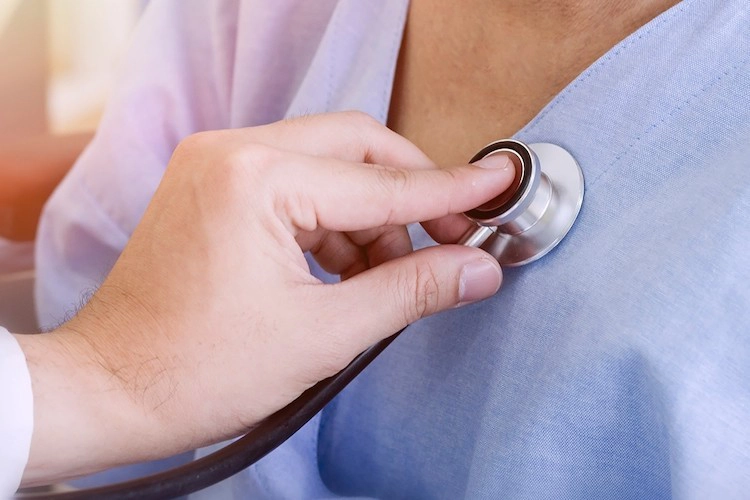Cardiology
Recognized for Excellence with Chest Pain Center Accreditation
Making Heart Health A Priority
Heart health is about more than just your heart. Blood pressure, cholesterol, family history and other factors all play important roles in keeping your heart strong. If you have questions about your heart health but aren’t quite sure where to begin, start with a heart health assessment and learn more about any risks you may have for heart-related conditions. As an accredited Chest Pain Center, your journey to a stronger heart starts here.

Cardiology Services
At Willamette Valley Medical Center, we are committed to delivering high-quality cardiology services designed to promote heart health. From emergency heart care to diagnostics and imaging, we’re here with compassionate cardiac treatment in your community. We prioritize patient well-being and satisfaction and strive to empower individuals to make informed decisions about their cardiovascular health. Your heart health is our priority.
Conditions we manage & treat:
- Cardiac arrest
- Chest pain
- Congenital heart defects
- Coronary circulation (arteries and veins) issues
- Heart muscle, outer lining, and valve problems
- Vascular diseases
- Congestive heart failure
Click the links below to learn more about our heart services:
Next Steps
Find a Cardiologist
Need help finding a cardiologist? We can help.
Heart Screenings & Imaging
An accurate diagnosis is the first step to treating heart disease. Learn more about the diagnostic services we offer.
Learn More About Chest Pain
As an accredited Chest Pain Center, we provide our patients with the best heart care treatment available.
Heart Health Services and Education
Explore how cardiac rehabilitation supports recovery and strengthens heart health after a cardiac event.
Learn proactive steps and medical strategies to reduce your risk of heart disease.
Understand the warning signs of heart attacks and chest pain and when to seek immediate care.
Find out how cardiac stress testing evaluates how your heart performs under physical exertion.
Understand how echocardiograms and electrocardiograms help evaluate heart structure and rhythm.
Quality Heart Care, Close to Home
“Thanks to Cardiac Rehab I can now lift a 40lb bag of chicken feed with ease.” - Bob, May 2024
“The routine and the staff in Cardiac Rehab, support helped me get in better shape and I actually enjoy it! Thanks, self-care is fun.” - David, May 2024
“When the anesthesiologist stated ‘you look a lot better in person than on paper’ is a testimony to my time in cardiac rehab. Two bypass surgeries and a pacemaker later, going strong at 78." - John, May 2024
"I like the individualized care I receive in cardiac rehab." - Marlene, May 2024
“I started cardiac rehab 18 months ago, weighing 220lbs and using a walker. The routine three times per week has resulted in the following: now weighing 162-164lbs and I can exercise for extended time. So it works and I feel strong. Now walking 4.3 miles. It works well, and the staff is very supportive.” - David, May 2024






